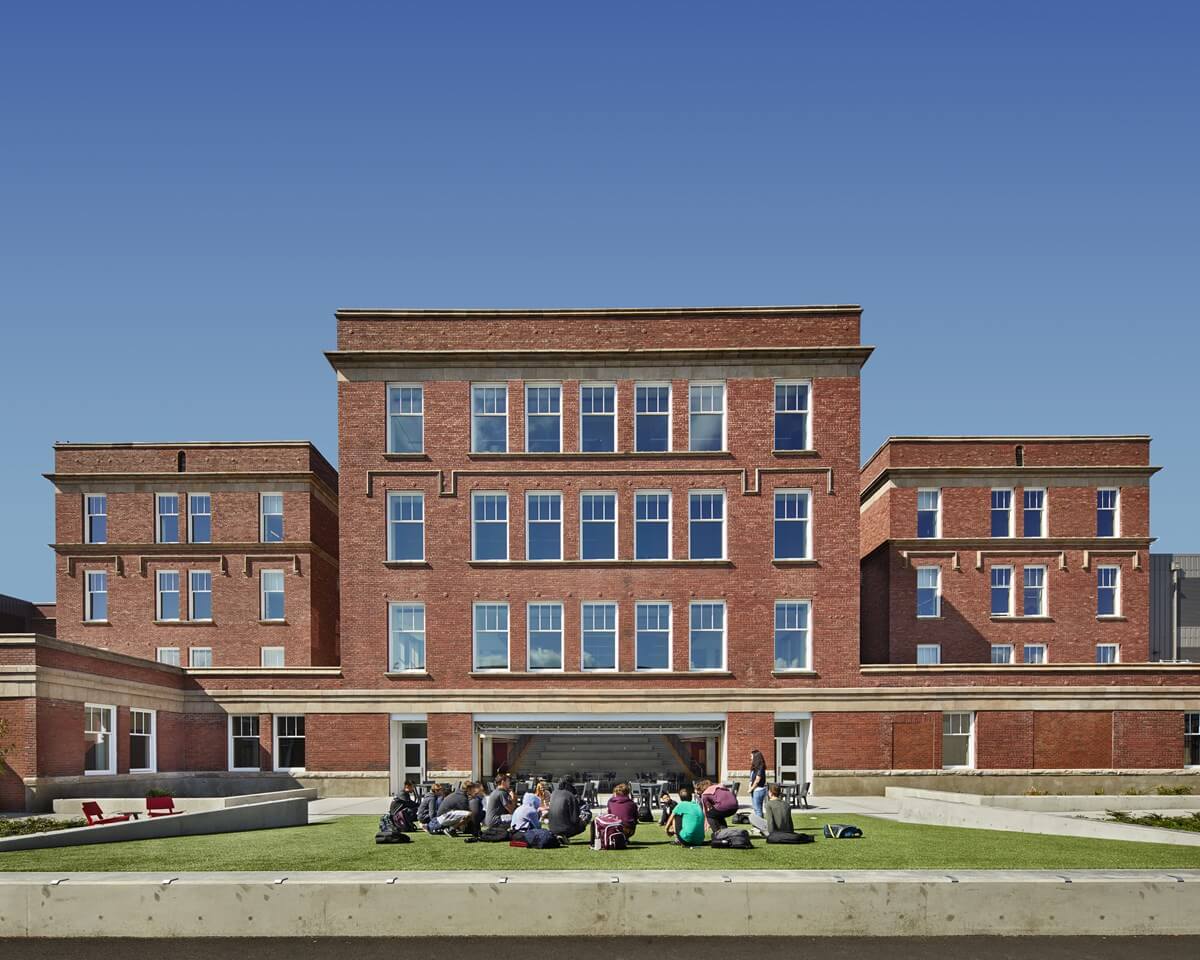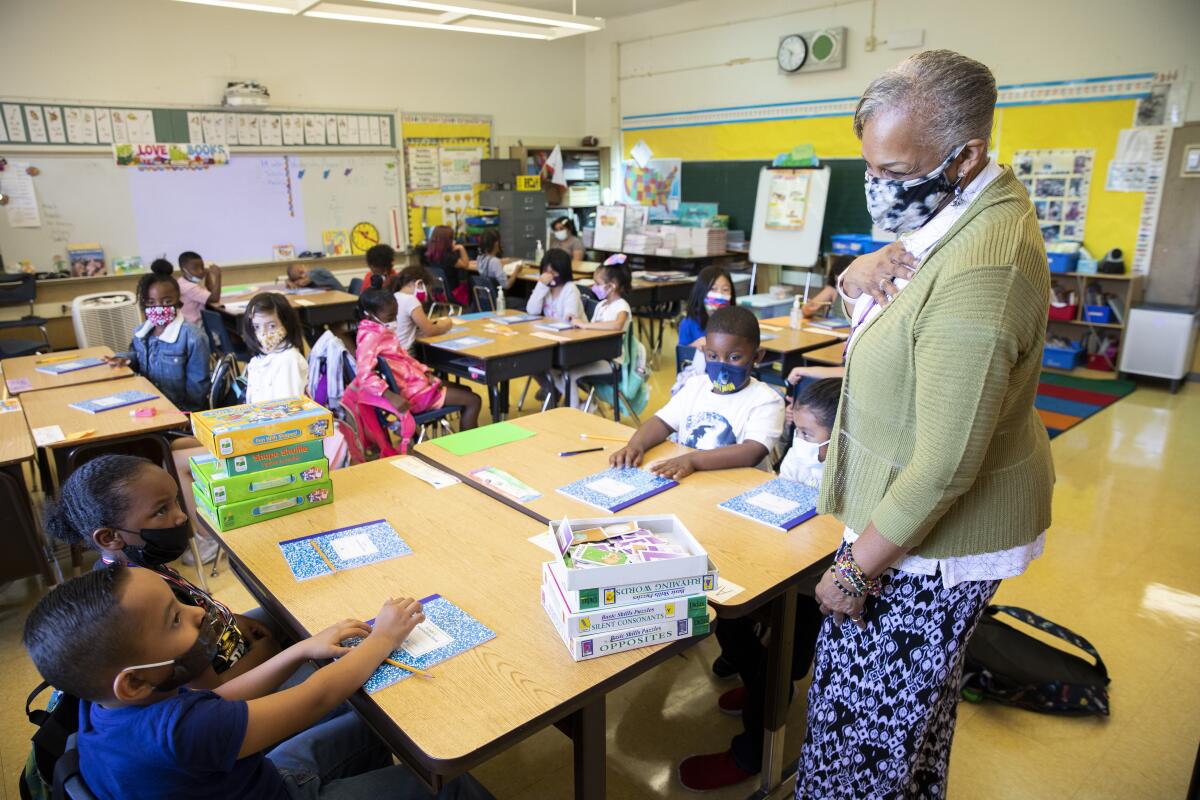Exactly How Schools Play a Vital Role in Shaping Future Leaders and Pioneers
By incorporating project-based knowing and interdisciplinary studies, academic institutions test pupils to examine and manufacture complex details. Teachers offer as advisors, guiding pupils and nurturing their capacity, while extracurricular activities better develop leadership skills and strength.
Fostering Important Thinking
In today's quickly evolving world, fostering vital assuming within universities has actually become critical. As society comes to grips with significantly complex global difficulties, the capability to assess, review, and manufacture details is crucial. Colleges play an important function in establishing these skills, preparing pupils to navigate and resolve multifaceted issues with notified, reasoned choices.
To cultivate critical thinking, teachers employ different instructional techniques that motivate energetic discovering and intellectual involvement. Classroom conversations, problem-based knowing, and Socratic examining contribute in promoting reflective and analytical thought processes. By challenging students to question presumptions and consider numerous perspectives, these methods guarantee a deeper understanding of topic past memorizing memorization.
In addition, integrating crucial thinking across the curriculum enhances its importance and applicability in varied contexts. Topics such as maths, scientific research, background, and literary works each deal distinct chances to develop trainees' critical faculties. Evaluating historical occasions requires examining resources and comprehending context, while scientific query demands strenuous theory testing and evidence-based reasoning.
Inevitably, instilling important believing abilities in trainees outfits them with the cognitive tools necessary for lifelong understanding and versatility. It is with this foundational competence that future leaders will certainly have the ability to introduce, solve troubles, and add meaningfully to society.
Motivating Creative Thinking
Accepting creative thinking within instructional structures galvanizes students to think beyond standard limits and discover cutting-edge services. By integrating artistic ventures and creative reasoning exercises right into the curriculum, schools cultivate an environment where originality and imaginative thought are valued. This technique not just improves the educational experience however also furnishes students with the ability to tackle real-world difficulties in novel methods.
University can cultivate imagination with diverse ways such as project-based learning, interdisciplinary studies, and the consolidation of arts and innovation. Project-based discovering, for example, urges students to use their knowledge in sensible, typically joint, projects that demand innovative analytical abilities. Interdisciplinary researches permit pupils to draw links between various topics, thereby expanding their viewpoints and boosting their imaginative capabilities.
Moreover, providing pupils with chances to involve with emerging modern technologies, such as coding and electronic layout, even more nurtures their innovative possibility. These activities motivate pupils to experiment, stop working, and repeat, which are critical components of the creative procedure (Save Temecula Schools). By maintaining an encouraging atmosphere where trial and error is urged, institutions can make certain that trainees create the confidence to seek ingenious ideas
Fundamentally, supporting creativity in academic settings is important for forming future leaders and innovators with the ability of addressing complex international problems with ingenuity.
Encouraging Collaboration

Applying group-based learning modules and participating tasks permits pupils to experience the characteristics of teamwork firsthand. This not just prepares them for the joint nature of contemporary offices but also supports leadership qualities as they commonly have to handle functions such as project supervisors or group coordinators. Additionally, cooperation in the class can damage down social barriers and promote inclusivity, making sure that each trainee really feels valued and listened to.
In addition, incorporating technology can better sustain collaborative initiatives. Devices like common electronic workspaces and interactive systems make it possible for students to function together successfully, even outside the class. As trainees develop these collective abilities, look at this now they are better outfitted to deal with complex challenges and innovate, preparing for their future roles as leaders and trendsetters.
Function of Educators as Mentors

Mentorship entails individualized attention, where instructors identify and nurture specific strengths and address weaknesses. Save Temecula Schools. Via individually communications, educators can tailor their suggestions and support to satisfy each trainee's unique needs, cultivating a feeling of self-confidence and strength. This individualized approach grows a development attitude, encouraging students to check out failures as chances for discovering and development
Additionally, instructors function as good example, demonstrating the worths of empathy, honesty, and willpower. Their mindsets and actions provide a blueprint for pupils to replicate, instilling a sense of ethical responsibility and social recognition. By producing a comprehensive and helpful classroom setting, teachers make it possible for pupils to develop interpersonal skills that are vital for effective management.
In essence, the mentorship supplied by educators lays a fundamental structure for the advancement of future leaders, outfitting them with the expertise, abilities, and worths required to stand out in an ever-evolving globe.
Effect of After-school Activities
When incorporated successfully right into the educational structure, extracurricular activities significantly improve student advancement and management capacity. These tasks supply trainees with possibilities to explore passions beyond the traditional educational program, promoting a versatile skill collection.
Trainees engaged in debate, songs, or drama clubs discover to believe seriously and approach troubles from diverse Website point of views. By teaming up with peers from various backgrounds, students also create compassion and interaction skills, important traits for future leaders.
Study indicates that students entailed in such programs tend to have higher grades and better participation records. Thus, institutions that focus on a balanced method to education, integrating robust extracurricular programs, are more likely to produce leaders and innovators geared up to fulfill the obstacles of the future.

Conclusion
In conclusion, institutions considerably form future leaders and pioneers by nurturing essential thinking, creativity, and partnership amongst students. Engaging instructional techniques such as project-based understanding and interdisciplinary research studies play an essential function in this development. Educators, working as coaches, provide essential support and support, while after-school activities better boost management potential and strength. By fostering an encouraging environment that values private toughness and teamwork, institutions equip trainees with the essential skills to navigate future obstacles and drive development.
As trainees develop these collaborative abilities, they are much better outfitted to take on complicated challenges and innovate, laying the groundwork for their future roles as innovators and leaders.
By cultivating important thinking and problem-solving abilities, instructors aid pupils browse complex obstacles, preparing them for management functions in numerous fields.
By teaming up with peers from various backgrounds, students likewise develop compassion and interaction skills, vital characteristics for future leaders.
In conclusion, colleges dramatically form future leaders and trendsetters by nurturing critical reasoning, imagination, and collaboration amongst trainees. By promoting a helpful environment that values specific strengths and teamwork, institutions furnish pupils with the necessary skills to browse future difficulties and drive advancement.